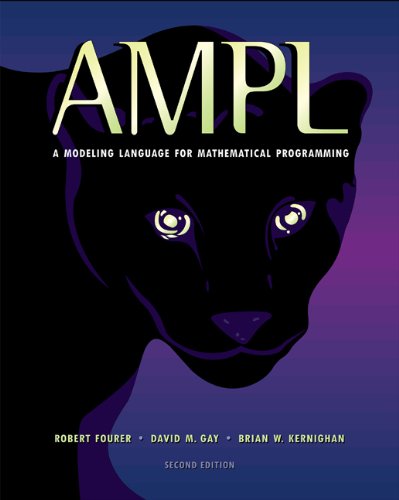
AMPL: A Modeling Language for Mathematical Programming
by R. Fourer, D.M. Gay, B.W. Kernighan
Publisher: Duxbury Press 2002
ISBN/ASIN: 0534388094
ISBN-13: 9780534388096
Number of pages: 540
Description:
AMPL is a language for large-scale optimization and mathematical programming problems in production, distribution, blending, scheduling, and many other applications. This book, written by the creators of AMPL, is a complete guide for modelers at all levels of experience.
Download or read it online for free here:
Download link
(multiple PDF files)
Similar books
 The Icon Programming Language
The Icon Programming Languageby Ralph E. Griswold, Madge T. Griswold - Peer-to-Peer Communications
Icon is a general-purpose programming language available for free on many platforms. It has a rich set of types, together with an interesting goal-directed evaluation mechanism. The book is user-friendly, some prior programming experience necessary.
(9872 views)
 COBOL: A self-instructional manual
COBOL: A self-instructional manualby James A. Saxon - Prentice-Hall
The COBOL system was developed to produce an English-like programming language which can be used on many different types of data processing systems. This manual has been developed to teach the beginner the fundamentals of COBOL programming.
(16894 views)
 Dylan Programming: An Object-Oriented and Dynamic Language
Dylan Programming: An Object-Oriented and Dynamic Languageby Neil Feinberg, et al. - Addison-Wesley
Dylan is a new programming language, that is both object-oriented, like C++ and Java, and dynamic, like Smalltalk. This book will be useful to anyone learning dynamic, object-oriented programming, whether it be in Dylan, Java, Smalltalk, or Lisp.
(10770 views)
 J for C Programmers
J for C Programmersby Henry Rich - Jsoftware
This book's goal is to explain rudimentary J using language familiar to a C programmer. J is a language of computation: it lets you describe what needs to be done without getting bogged down in details. J expressions deal with large blocks of data.
(7485 views)